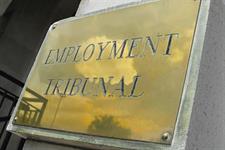Employers will no longer be able to “pick on” staff who take part in strike action after a case involving a health and social care charity, according to the union Unison.
The union said employment law previously prevented employers from sacking staff involved in strike action or other workplace disputes but not from disciplining or making life difficult for them.
But it said that a judgment last week from the Employment Appeal Tribunal in a case involving the charity Alternative Futures Group and support worker Fiona Mercer had led to the law being updated.
Mercer, who was a union representative and who had been employed at the charity since 2009, had taken AFG to an employment tribunal in Manchester in spring last year.
She had been involved in planning and organising a series of strikes between March and May 2019 and conducted some media interviews when she indicated her intention to take part in the strike action.
On 26 March 2019, she was suspended and told that it was because she had abandoned her shift to take part in the strike on two occasions without permission, and that she had spoken to the press without prior approval from the charity, according to tribunal documents.
The suspension was lifted on 11 April, but the disciplinary action proceeded, and two weeks later Mercer was given a first written warning for leaving her shifts.
Mercer told the Manchester tribunal she was unfairly suspended due to her involvement with the strike action. The charity contended that this was not the case.
The tribunal found that although section 146 of the Trade Union and Labour Relations (Consolidation) Act 1992 protects workers against detriment related to taking part in the activities of an independent trade union, this had previously been interpreted as not including industrial action.
The union argued that Article 11 of the European Convention on Human Rights should mean that workers must not be disciplined or treated unfairly in some other way because they were taking part in industrial action.
But the Manchester tribunal concluded that while there was an infringement of Article 11, it was not possible to interpret section 146 in a compatible way.
This decision was appealed to the Employment Appeal Tribunal, which accepted that the trade union act had failed to provide effective and clear judicial protection in respect of industrial action, which was part of the rights guaranteed under Article 11, and the law has been updated accordingly.
Christina McAnea, general secretary of Unison, said: “Until now, employers have used a loophole in UK law to pick on workers who’ve taken part in disputes, safe in the knowledge that nothing will happen to them. Now they’ll no longer be able to.
“This is an important victory for UK workers. It confirms that if ever they need to take legal action over pay, holidays or other workplace issues, unions can protect them from employer bullying and harassment.”
A spokesperson for the charity said: “We acknowledge the outcome of the EAT and are currently considering next steps with our legal advisers.
“We wish to make it clear the action taken against Mrs Mercer by us was for an entirely unrelated matter and in no way connected with her trade union activities or her right to organise and take part in industrial action.
“We note that the EAT has considered matters related to the broader legal framework and the protections against detriment for taking part in industrial action.”
